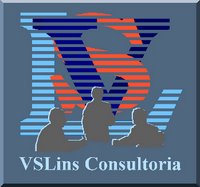Organizational forms and dominance of knowledge types
In table 1 the combinations of dominance of knowledge type and organizational form are presented. The level of analysis is the organizational process. More detailed determinations can be done for the constituting tasks within the organizational processes and for the individual actors.
The combinations are not the result of empirical research. They are the result of analytical reasoning and could be reformulated as hypotheses. I will llustrate the reasoning by shortly discussing the various combinations, from clan (ta +; c -; th -) to market (ta +; c +; th +).
A clan (ta +; c-; th -) consists of a limited group of actors that cooperate on the basis of trust, sometimes justified by family or very close friendship relations. Boisot (1995, p. 259) says that the term clan refers to a non-hierarchical group of limited size transacting on the basis of shared intangible knowledge and values.
These values are implicit and well-known by the members of the clan, but they are very difficult to formulate. Clans often are small and local, which means that different clans have different interpretations of what trust, loyalty, responsibility and obedience mean. If a clan is large, it normally consists of sub-clans, because of the nature of physical presence or proximity.
The combinations are not the result of empirical research. They are the result of analytical reasoning and could be reformulated as hypotheses. I will llustrate the reasoning by shortly discussing the various combinations, from clan (ta +; c -; th -) to market (ta +; c +; th +).
A clan (ta +; c-; th -) consists of a limited group of actors that cooperate on the basis of trust, sometimes justified by family or very close friendship relations. Boisot (1995, p. 259) says that the term clan refers to a non-hierarchical group of limited size transacting on the basis of shared intangible knowledge and values.
These values are implicit and well-known by the members of the clan, but they are very difficult to formulate. Clans often are small and local, which means that different clans have different interpretations of what trust, loyalty, responsibility and obedience mean. If a clan is large, it normally consists of sub-clans, because of the nature of physical presence or proximity.
 Table 1
Table 1Extráído de Knowledge Types and Organizational Forms in Knowledge Management
René JORNA


<< Home